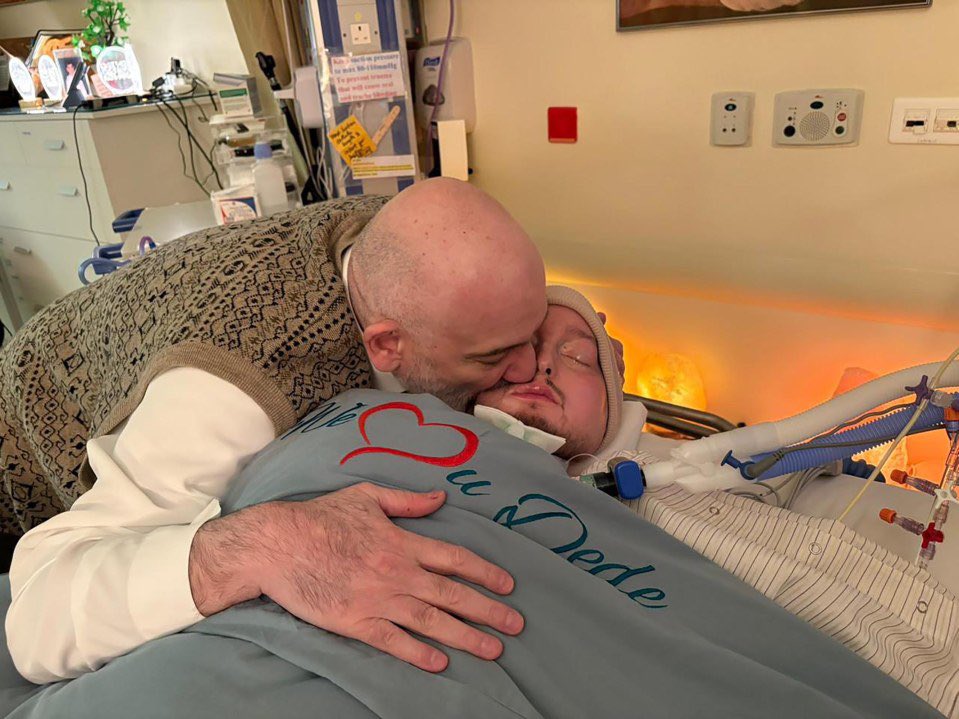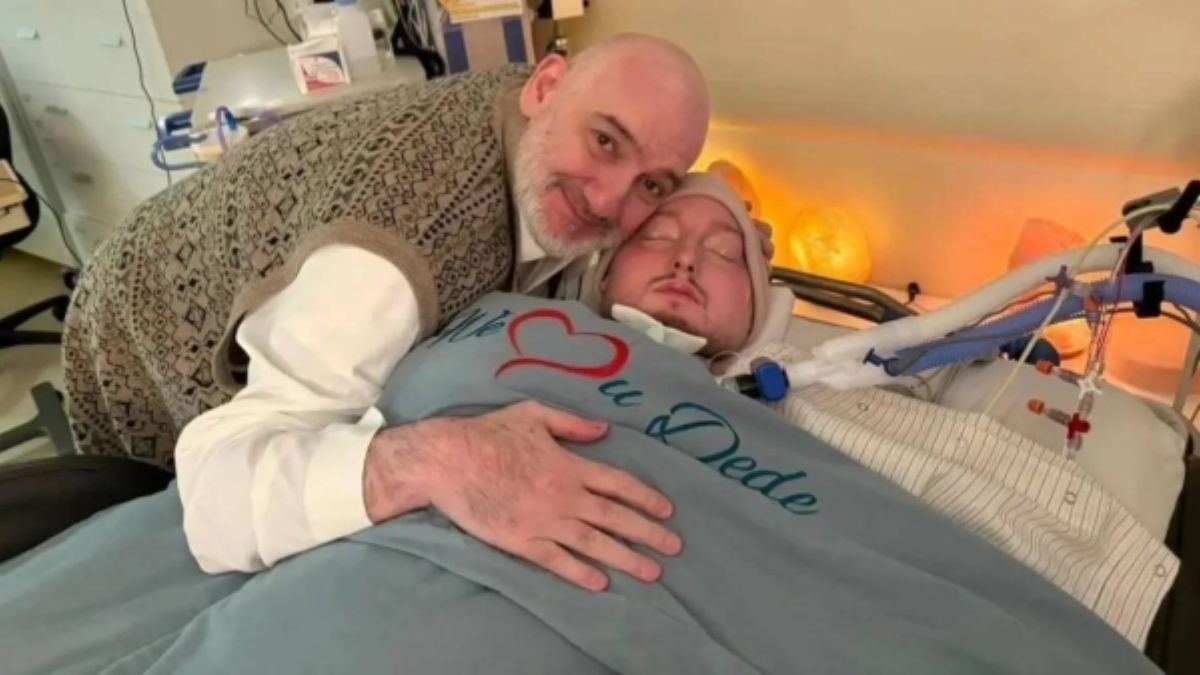New York: He was just 15 when the car crash happened. A routine day at a military college in London turned into a moment that would freeze time for one Saudi family — and quietly captivate an entire nation. Prince Al-Waleed bin Khaled bin Talal Al Saud never opened his eyes again, but his father, Prince Khaled, refused to believe it was the end.
For the next 20 years, Prince Khaled stayed by his son’s side, transforming hospital rooms into spaces of prayer, hope, and celebration. He decorated for Eid, shared videos of the prince’s slight movements, and marked every year not as one lost — but one loved. The world called Al-Waleed the “Sleeping Prince.” His father simply called him “Dede.”
On July 19, 2025, that long vigil came to an end. Al-Waleed passed away at age 36, having spent over half his life in a coma. But this is not just a story of loss — it’s a story of unwavering love, of spiritual resilience, and of what it means to never let go, even when the world tells you to.

Who Was the ‘Sleeping Prince’ of Saudi Arabia?
Born in April 1990, Prince Al-Waleed bin Khaled was the eldest son of Prince Khaled bin Talal Al Saud — a well-known royal and nephew of billionaire Prince Al-Waleed bin Talal. In 2005, while studying at a military academy in London, Al-Waleed was involved in a serious car crash that left him with a traumatic brain injury and internal bleeding.
He was placed on life support and flown back to Saudi Arabia for further treatment. While many doctors advised removing life support, Prince Khaled made a decision that defied medical logic and became a testament to paternal devotion: he chose to keep his son alive.
Over the next two decades, Prince Al-Waleed remained in a coma at King Abdulaziz Medical City in Riyadh, sustained by machines but surrounded by family, faith, and unwavering love.
The Father Who Never Gave Up
Prince Khaled didn’t just keep his son alive — he kept him part of life.
He frequently posted photos and videos from his son’s hospital room. During Ramadan, Eid, and Saudi National Day, the room was decorated with festive lights and flags. Nurses and family members would gather in prayer. And every time the prince lifted a finger or moved his head — no matter how slight — it was shared like a miracle.
The passing of His Royal Highness Prince Al-Waleed bin Khaled bin Talal bin Abdulaziz Al Saud, after spending more than 21 years in a deep coma, during which he became known as “The Sleeping Prince”, following a tragic car accident in 2005.
Prince Al-Waleed turned 36 years old… pic.twitter.com/dORKGCCXH9
— WAJD ROYALS (@calm_933) July 19, 2025
In a 2019 video that briefly went viral, Al-Waleed appeared to move his head and arm slightly. It was enough to rekindle hope, even though no meaningful recovery followed. The family continued to post regular updates, often writing in Arabic, invoking God’s mercy and patience.
“With hearts believing in Allah will and decree, and with deep sorrow and sadness, we mourn our beloved son: Prince Al-Waleed bin Khaled bin Talal bin Abdulaziz Al Saud, may Allah have mercy on him, who passed away today,” Prince Khaled wrote on X (formerly Twitter) when announcing his son’s passing on July 19, 2025.
He ended the post with a verse from the Quran: “O reassured soul, return to your Lord, well-pleased and pleasing [to Him], and enter among My servants and enter My Paradise.”
A Symbol of Faith for Millions
Across Saudi Arabia and the wider Arab world, the “Sleeping Prince” became more than a royal name. He became a symbol — of prayer, of persistence, of what it means to hold onto love in the face of uncertainty.
For a generation of Saudis, he was part of the background of their lives. His story was taught in schools. His father’s devotion was referenced in sermons. Many people — even those who never knew the family personally — prayed for the prince’s recovery.
“Your time on earth was a blessing to your family and the world,” one user wrote as news of his passing spread.
“May Allah reward your father’s patience and love,” said another.
The hashtag #SleepingPrince trended across Saudi Arabia shortly after the announcement. In a region where family and faith are deeply intertwined, the story struck a chord that many carried privately.
The End of a Two-Decade Vigil
The funeral service was held on Sunday, July 20, as announced by Prince Khaled. Though the prince never regained full consciousness, he wasn’t alone in his passing — not emotionally, not spiritually, not symbolically.
The farewell felt less like the end of a tragedy and more like the close of a long, sacred chapter — one filled with faith, pain, hope, and the purest form of love a parent can offer.
And that’s why this wasn’t just a headline. It was a love story.
Statement On the Passing of Prince Alwaleed bin Khaled bin Talal Al Saud pic.twitter.com/st19kxb7lC
— Global Imams Council (GIC) (@ImamsOrg) July 19, 2025
What This Means for the Arab World
While Prince Al-Waleed’s passing doesn’t carry direct political weight, the story’s emotional impact is profound. It has already prompted renewed discussions in Saudi Arabia about long-term care, the ethics of life support, and how families balance medical advice with religious conviction.
No official royal initiative or memorial fund has been announced yet, but many expect one — especially focused on coma recovery research or family care support — to follow.
For now, though, it’s a moment of quiet mourning. And for those who watched and waited alongside Prince Khaled for two decades, it’s a moment of peace.







